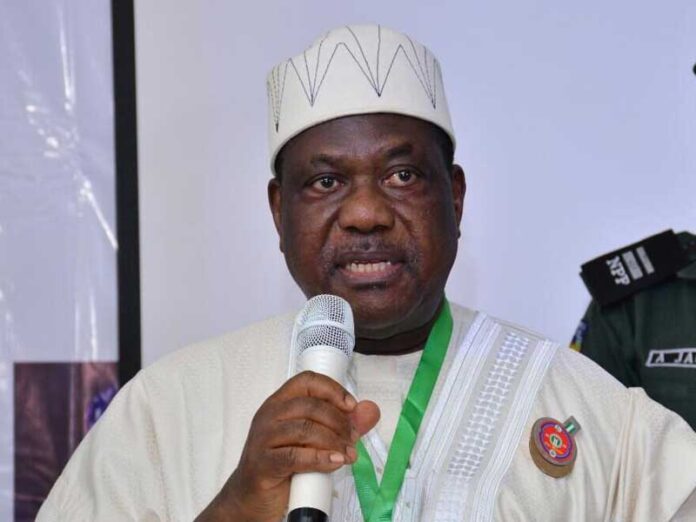Akume: Difficult Choices Being Made By Our Govt Are to Prevent Collapse of System
Chigozie Amadi
Secretary of the Government of the Federation (SGF), Senator George Akume, has reiterated that most of the difficult decisions being made by the federal government were to prevent a total collapse of the system.
At the same time, the Economic and Financial Crimes Commission (EFCC) has expressed concern over rising cases of cybercrimes, especially among the youths in the country.
The commission, however, said 60 per cent of arrests so far made on cybercrimes are mainly young persons between the ages of 16 and 19 years.
Also, the Sultan of Sokoto, Alhaji Muhammadu Sa’ad Abubakar III, and President of the Christian Association of Nigeria (CAN), Archbishop Daniel Okoh, have lamented the persistence of the evil of corruption in Nigeria, adding that citizens were going through a lot of hardship at the moment.
However, speaking on the state of things, Akume explained that the government has never relented in expressing its deepest sympathy with the people over the resultant hardships Nigerians were passing through.
The SGF, who spoke at the First Quarterly meeting of the Nigeria Inter-Religious Council (NIREC) held in Abuja, also addressed the menace of cybercrime, and lamented the increasing involvement of youths in the criminal act
He said though moderate successes had been recorded in dealing with cybercrime, especially in the areas of apprehension, prosecution and convictions, the government would leave no stone unturned in exterminating the scourge.
On his part, the EFCC Chairman, Ola Olukoyede, who was represented by the commission’s spokesperson, Wilson Uwajerin, said a collective action needed to be taken by the society not just the Commission or government alone to prevent the country from sinking deeper into corruption and moral decadence.
He said the commission was worried about the involvement of large number of youths in cybercrime, adding that over 60 per cent of arrests made by EFCC involved people of this age group.
“That some of these young ones, some of them 16, 17 and 19 years old, are being convicted and sent to prison is very worrisome of what may become of them in the future.
“At the moment, a lot of these youths do not know the implications of carrying that tag of ex-convicts, something that may deny them a lot of benefits in the future.
“By the way our constitution is framed, some of them may not be qualified to aspire for a political office in future and they may not even fit into some areas in the private sector.
“So, that is the challenge for us now in the EFCC,” he said, stressing that the Commission had come the realisation that enforcement alone could not solve the problem thus the decision to embrace the idea of prevention,” he said.
In his presentation, the ICPC Chairman, Musa Adamu Aliyu, said the two major religions in the country condemned and abhorred corruption.
Specifically addressing cybercrimes, he said the ICPC has received several cases of alleged cybercrimes, some of which it had prosecuted and conviction secured.
He said there was need for religious leaders to join hands with government in the campaign against corruption and to fish out corrupt elements in the society.
Earlier the Sultan of Sokoto, lamented the hardship the citizens were going through at the moment, most of which he said could be attributed to economic sabotage and corruption. he, therefore, called for more support for the anti-corruption agencies in their efforts to rid the country of the dubious practices.
Okoh, on his part, said the teachings of the Holy Bible eloquently discourages the faithful from engaging in corrupt acts but that many had ignored the injunction to indulge the crime.
Executive Secretary of NIREC, Prof Cornelius Omonkhua, contended that most young people were driven into cybercrimes by their desperate bid to escape poverty.
























